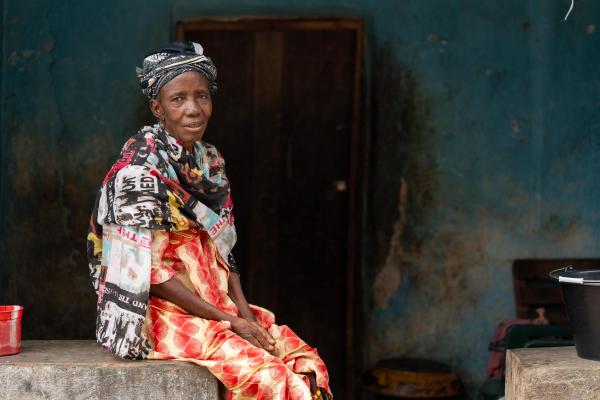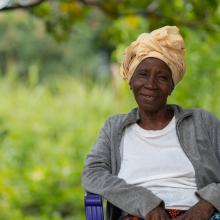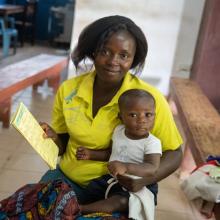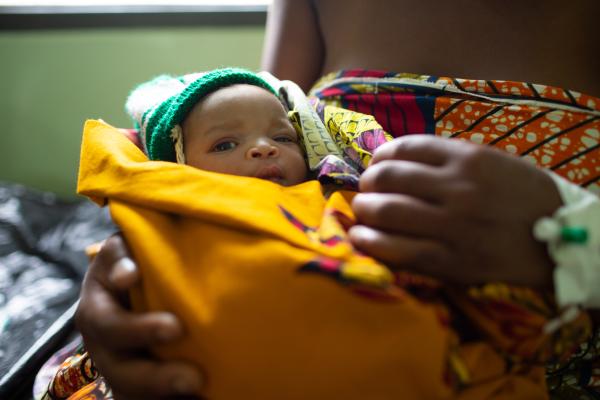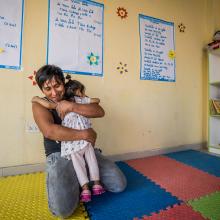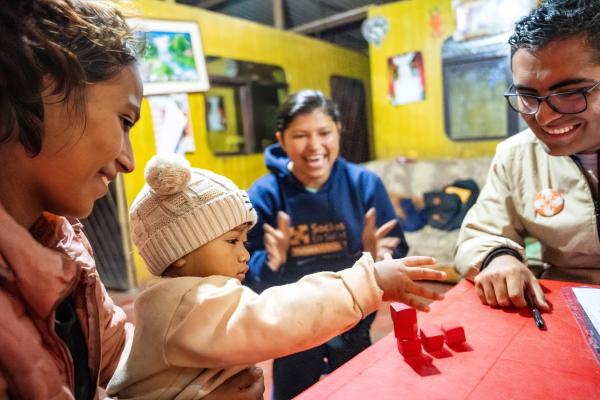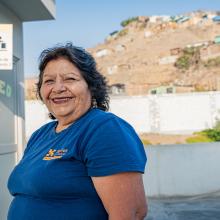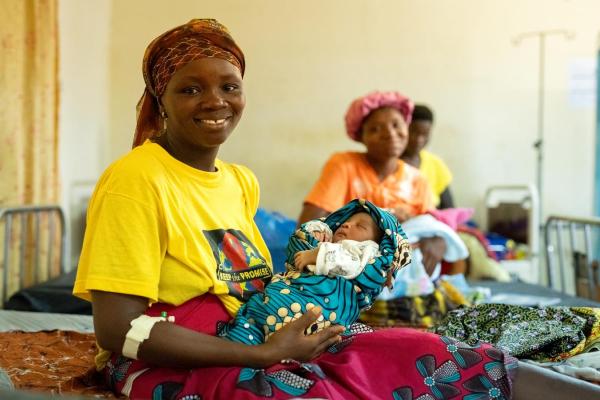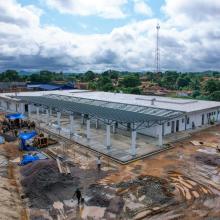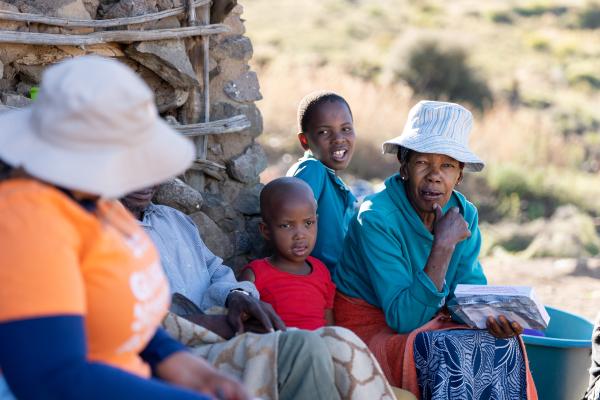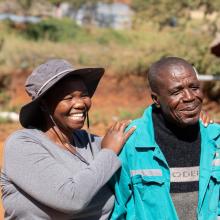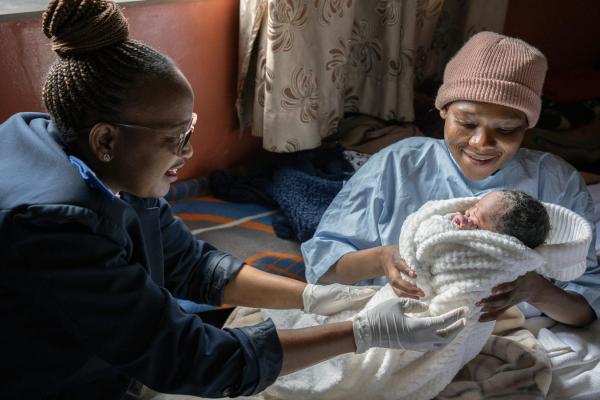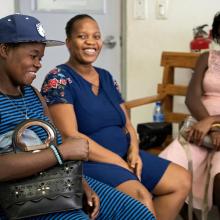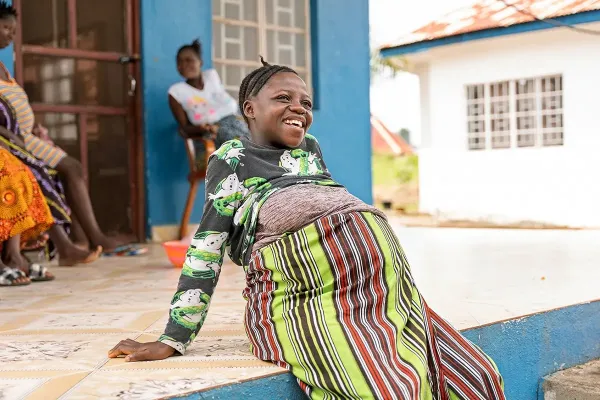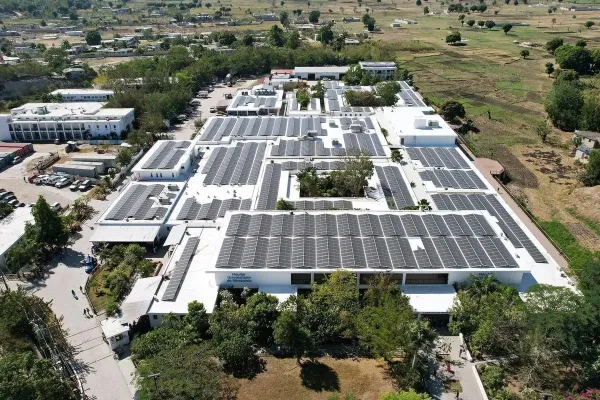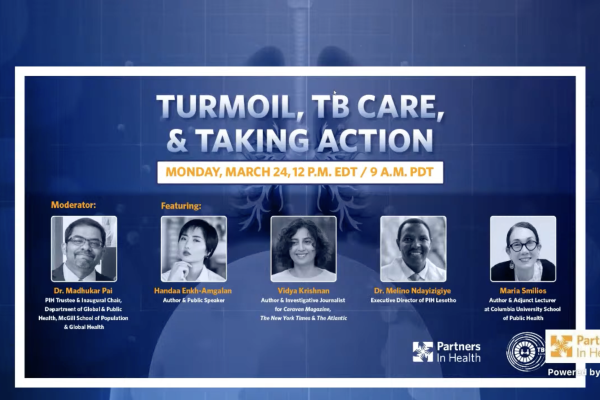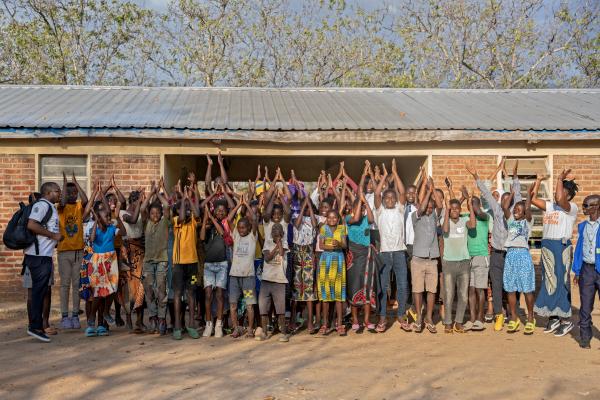A Mother's Love Can't Fix A Broken System
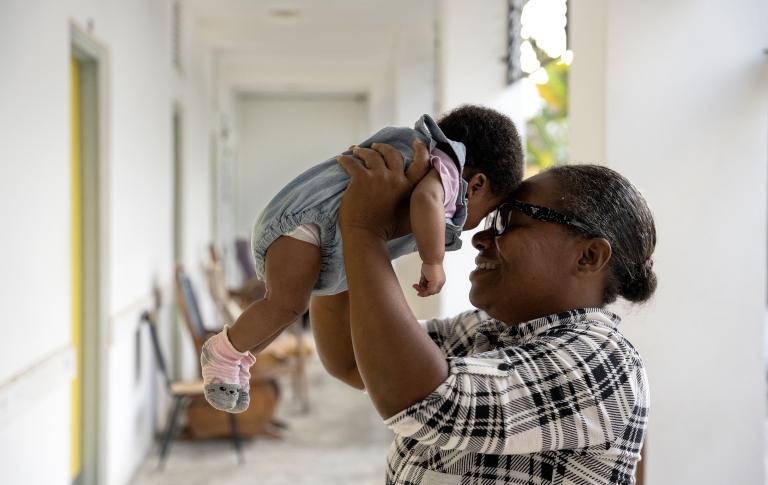
Mélissa Jeanty / PIH
Our Mission
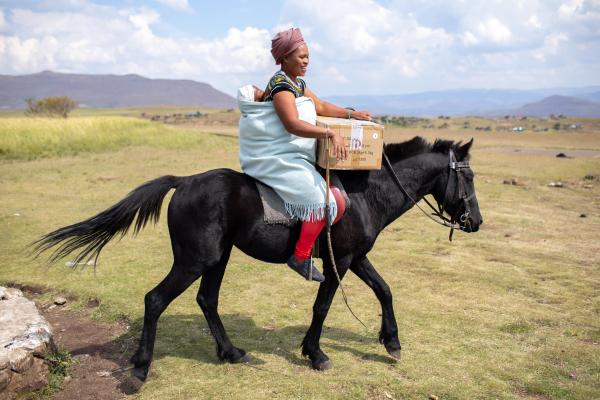
Makatleho Monyake and her 4-month old baby prepare to ride home on horseback with a food package following an appointment at Partners In Health-supported Bobete Health Center in Lesotho.
Zack DeClerck / PIH
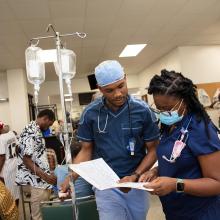
Dr. Beaubrun in blue scrubs and cap, attending to patients in Partners In Health-supported Hopital Universitaire de Mirebalais (HUM) in Mirebalais, Haiti, on March 24, 2023.
Nadia Todres / PIH
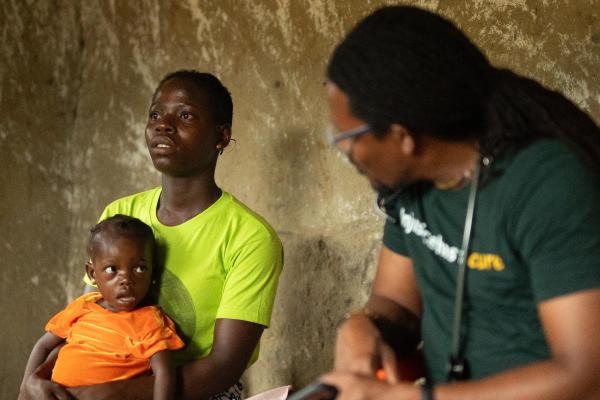
19-year-old Agatha Baker holds her 3-year-old daughter, Pauline, in their home in Puluken, Liberia. Agatha and Pauline met Dr. Maxo Luma, Executive Director of PIH Liberia, on March 2022.
Caitlin Kleiboer / PIH
Partners In Health (PIH) is a non-profit, global health organization that fights social injustice by bringing the benefits of modern medical science first and foremost to the most vulnerable communities around the world.
Areas of Focus
PIH strives to make health care a human right for all people, starting with those who need it most. We provide comprehensive primary medical care services as well as treatment for complex diseases like HIV, tuberculosis and cancer.
The need
We believe health care is a human right. But for millions around the world, that’s not the reality. By leveraging the benefits of modern medical science and the experience of our patients, we strive for communities with zero preventable deaths.
- 50%of people lack access
to essential health care across the globe
- 94%of maternal deaths
occur in low- and lower middle-income countries
- 13,400children die every day
before reaching their fifth birthday
Join us
Support our efforts and stand in solidarity with marginalized communities to make a real impact.
